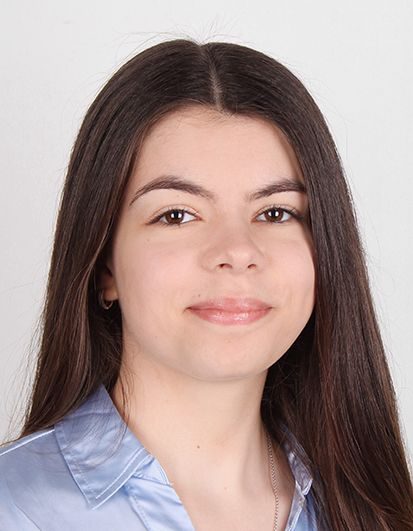“An instrument in the hands of God” – that’s how the former Bulgarian Chief Prosecutor Ivan Geshev described himself once, encapsulating with his words the controversial nature of his term in office.[1] The state of Bulgaria’s judiciary system has been plagued by accusations of corruption, political biases and inefficiency for years. In addition, as an EU member, the country faces a lot of pressure to uphold the rule of law and to implement reforms. However, since the appointments of the last two Chief Prosecutors – Ivan Geshev and Borislav Sarafov, debates have arisen about whether all their actions are steps towards reforms or just participation in a political game.
The era of Ivan Geshev as Chief Prosecutor started in 2019 and was deemed controversial from the beginning. His appointment process lacked other real competitors, and his qualifications for the post were widely questioned by both the institutions and the population. Backed by two powerful political parties, GERB (Citizens for European Development of Bulgaria) and DPS (Movement for Rights and Freedoms), who are both frequently accused of corruption, the rise of Geshev left a bitter taste in the mouths of many Bulgarians, as his actions were marked by selective justice or inaction, rather that the promised reforms in the system that should have inspired confidence.[2]
While Geshev’s media appearances painted him as a competent professional, his actions spoke otherwise. Under his rule as Chief Prosecutor, very little progress was made towards handling corruption cases and investigations related to influential figures, such as politicians implicated under the U.S. Magnitsky Act. Meanwhile, he also raised concerns about the frequent leaks of sensitive information on high-profile officials under ongoing investigations. All of these errors eroded the public’s trust towards Geshev and the institution and judiciary system as a whole.
Public discontent grew, protests against Geshev became a common sight, and critics accused him of shielding corrupt politicians from GERB and DPS. These accusations solidified when investigations towards key figures like Boyko Borisov, the leader of GERB, fizzled out despite the growing amount of evidence.
The beginning of the end for Geshev came when he unexpectedly turned against his allies. In a rare move, he directed attention toward Borisov and revealed new evidence in the “Barcelonagate” case, which implicated the GERB leader in serious financial misconduct.[3] This shift, combined with an alleged assassination attempt on Geshev – widely suspected to have been staged – sealed his fate. His actions alienated his political supporters, and calls for his resignation grew louder. Ultimately, Geshev’s mandate ended amid widespread controversy, marking the conclusion of a deeply polarizing era.
In 2023, the former deputy of Geshev, Borislav Sarafov, was appointed as the new Chief Prosecutor. Like his predecessor, he didn’t face any competition for the role, which raised once again questions about the transparency and integrity of the selection process. Soon after the start of that new era, the critiques came. Many agreed that Sarafov lacked the professional and moral qualities needed for the position. In addition, his ties to political elites served as a clear indication that the judiciary would remain a part of the political game.[4]
On that note, it becomes clear that all of these controversies highlight deeper systemic problems within Bulgaria’s judiciary. The process of nominating and selecting senior judicial officials lacks transparency and accountability, leading to widespread public distrust. Additionally, the premature removal of two successive Chief Prosecutors underscores the judiciary’s vulnerability to political interference. This troubling aspect is supported by political parties with an interest in maintaining the status quo. Boyko Borisov, involved in several corruption scandals, has consistently benefited from the inability or, rather, the unwillingness of the judiciary to pursue meaningful investigations. Similarly, Delyan Peevski, leader of DPS, listed under the Magnitsky Act, uses the deep-rooted issues of the judiciary to evade accountability. This symbiotic relationship creates a vicious cycle: Chief Prosecutors protect corrupt politicians in exchange for their support, ensuring that meaningful reforms are blocked. As a result, the judiciary remains compromised, and Bulgaria struggles to meet its EU obligations to uphold the rule of law.[5]
Many Bulgarians recognize that the judiciary’s failure to address corruption is not an isolated problem but part of a bigger failure in the system. Despite widespread public discontent and desire for change, progress has been slow. Protesters and NGOs have highlighted the need for change, but entrenched political interests continue to resist. The EU has also exerted pressure on Bulgaria, warning of potential consequences if reforms are not implemented. However, without significant changes to the judiciary’s structure and leadership, these efforts risk being superficial.
To further the issues at hand, Bulgaria’s unstable political landscape in the last 3 years complicates even more the push for judicial reform. The frequent changes in government have created a climate of uncertainty, making it difficult to implement long-term solutions. Parties involved with corruption persist and use the judiciary as a tool to increase their power. The dismissal of Ivan Geshev and the current attempt to remove Borislav Sarafov from office highlight the ongoing struggle to reform Bulgaria’s judiciary. Since January 2025, the Parliament accepted changes in the judiciary law with which to stop the process of electing a new Chief Prosecutor, and in February, Sarafov appealed that decision, asking the Supreme Administrative Court to refer the changes in the law to the Constitutional Court. This means Borislav Sarafov will continue to be in power over the judiciary for six more months. While these events have brought renewed attention to the issue, they have also exposed the deep-rooted political games that continue to undermine the rule of law.[6]
Addressing these challenges is critical not only for Bulgaria’s EU obligations but also for its population, who deserve a fair and independent judiciary. Breaking the cycle of corruption and political dependence requires transparency and a commitment to genuine reform, which has been a continuous battle for the last years. Until these issues are resolved, Bulgaria risks remaining trapped in a web of political manipulation, with its judiciary serving as a tool for the powerful rather than a protector of justice.
Sources:
БНТ. (2025, February 6). Сарафов обжалва спирането на процедурата за избор на главен прокурор. Bntnews.bg; По света и у нас – БНТ Новини. https://bntnews.bg/news/sarafov-obzhalva-spiraneto-na-procedurata-za-izbor-na-glaven-prokuror-1325708news.html
Борис Митов. (2024, February 21). Сарафов vs. Гешев. Как прокуратурата призна, че може да изфабрикува разследване срещу всеки. Свободна Европа. https://www.svobodnaevropa.bg/a/sarafov-otvrashta-na-geshev-kak-prokuraturata-prizna-che-mozhe-da-izfabrikuva-razsledvane-sreshtu-vseki/32827832.html
Ина Друмева. (2025, January 16). Този съдебен съвет няма да избира главен прокурор, Сарафов продължава да мълчи. Dnevnik.bg; Dnevnik 2024 Next.js. https://www.dnevnik.bg/bulgaria/2025/01/16/4730031_sudebniiat_suvet_reshava_dnes_da_izbere_li_sarafov_za/#4730048
BTV News. (2020, April 14). Иван Гешев: Аз съм инструмент в ръцете на Господ. Btvnovinite.bg. https://btvnovinite.bg/bulgaria/ivan-geshev-az-sam-instrument-v-racete-na-gospod.html
Иво Беров. (2023, May 18). Защо се развали орташкият сговор между Борисов и Гешев. Dw.com; Deutsche Welle. https://www.dw.com/bg/zaso-se-razvali-ortaskiat-sgovor-mezdu-borisov-i-gesev/a-65668781
Mediapool. (2023, June 23). Стотици на протест срещу подмяната на Гешев със Сарафов – Mediapool.bg. Mediapool.bg. https://www.mediapool.bg/stotitsi-na-protest-sreshtu-podmyanata-na-geshev-sas-sarafov-news348924.html
Свободна Европа. (2024a, January 9). Какво знае Гешев за Борисов и Пеевски. Www.youtube.com. https://www.youtube.com/watch?v=P6PjWaB4UEk
Свободна Европа. (2024b, October 15). “Гешев номер 2”. Протест срещу Сарафов поиска спиране на конкурса за нов главен прокурор. Свободна Европа. https://www.svobodnaevropa.bg/a/protest-sarafozh-izbor-glazhen-prokuror/33159881.html
Wikipedia. (2020a, April 1). Borislav Sarafov. Wikipedia. https://bg.wikipedia.org/wiki/
Wikipedia. (2020b, November 13). Boyko Borisov. Wikipedia. https://en.wikipedia.org/wiki/Boyko_Borisov
Wikipedia Contributors. (2019, November 28). Magnitsky Act. Wikipedia; Wikimedia Foundation. https://en.wikipedia.org/wiki/Magnitsky_Act
Wikipedia Contributors. (2025a, March 18). Ivan Geshev. Wikipedia; Wikimedia Foundation. https://en.wikipedia.org/wiki/Ivan_Geshev
Wikipedia Contributors. (2025b, March 28). Delyan Peevski. Wikipedia; Wikimedia Foundation. https://en.wikipedia.org/wiki/Delyan_Peevski
[1] BTV News. (2020, April 14). Иван Гешев: Аз съм инструмент в ръцете на Господ. Btvnovinite.bg. https://btvnovinite.bg/bulgaria/ivan-geshev-az-sam-instrument-v-racete-na-gospod.html
[2] Свободна Европа. (2024a, January 9). Какво знае Гешев за Борисов и Пеевски. Www.youtube.com. https://www.youtube.com/watch?v=P6PjWaB4UEk
[3] Свободна Европа. (2023, June 8). Гешев внесе в парламента всички “относими доказателства” по “Барселонагейт.” Свободна Европа. https://www.svobodnaevropa.bg/a/32450132.html
[4] Mediapool. (2023, June 23). Стотици на протест срещу подмяната на Гешев със Сарафов – Mediapool.bg. Mediapool.bg. https://www.mediapool.bg/stotitsi-na-protest-sreshtu-podmyanata-na-geshev-sas-sarafov-news348924.html
[5] Иво Беров. (2023, May 18). Защо се развали орташкият сговор между Борисов и Гешев. Dw.com; Deutsche Welle. https://www.dw.com/bg/zaso-se-razvali-ortaskiat-sgovor-mezdu-borisov-i-gesev/a-65668781
[6] БНТ. (2025, February 6). Сарафов обжалва спирането на процедурата за избор на главен прокурор. Bntnews.bg; По света и у нас – БНТ Новини. https://bntnews.bg/news/sarafov-obzhalva-spiraneto-na-procedurata-za-izbor-na-glaven-prokuror-1325708news.html








